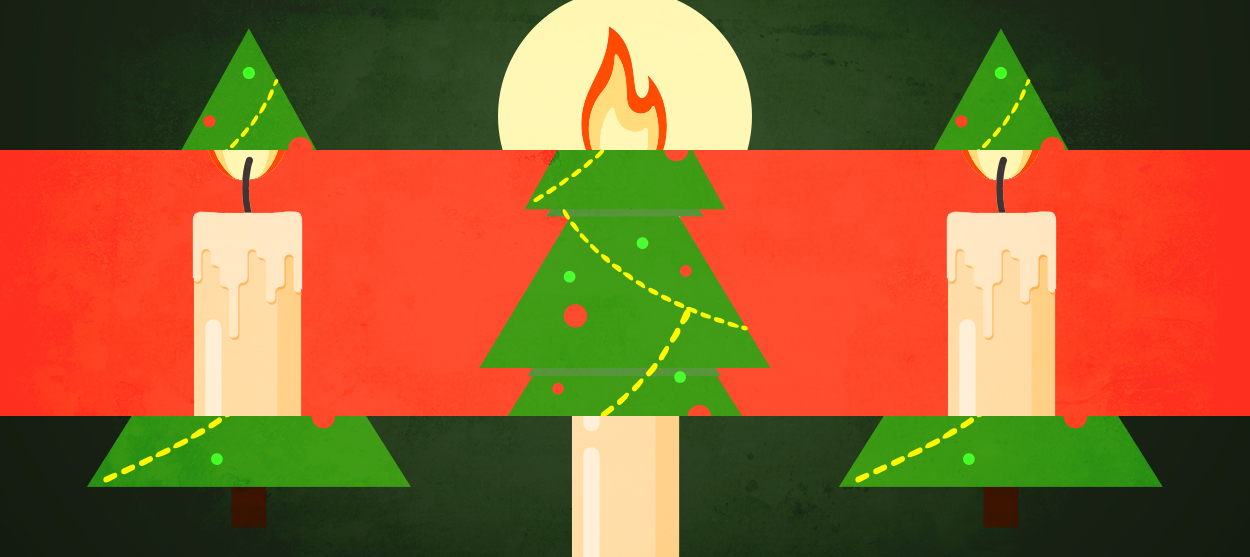The joy of a long Christmas
Why do Americans insist on ending the festive season so quickly?


A free daily email with the biggest news stories of the day – and the best features from TheWeek.com
You are now subscribed
Your newsletter sign-up was successful
The disappearance of Christmas lights from the world's windows is one of those sudden transformations that affect us even though we are as accustomed to it as we are the natural changing of the seasons. It is probably not quite as instantaneous as we imagine. There are always the stragglers who are too busy to undo what is often several hours' work according to some implicitly understood timetable and the merely lazy; perhaps most significant, there are those persons, in surprisingly large numbers, who for reasons they cannot quite articulate find themselves reluctant to go gently into the dark night of winter.
Still, it is my experience that most American households who bother decorating for Christmas at all — still the overwhelming majority in rural Michigan — take down their lights on or around January 2, a full month before the end of Christmastide. This is to say nothing of Christmas trees, which, more often than not, are plastic structures that are easy to take apart than they are to assemble rather than firs or pines or — the most beautiful, I have always thought — blue spruces, which are rarely purchased with the intention that they will be kept alive for more than a month.
Another essay could be written about the difficulties of raising a Christian family amid the deceitful clemency offered by a world that adorns itself as if for a ball only to declare a premature end to the revelry as soon as the first glass is raised, while the band is still warming up, and many hours before anyone in attendance has experienced the real joy of any party: that incomparable 2:00 a.m. feeling of contentment that always follows a full belly, plenty of drink, and hours of good talk, a peace that somehow transcends the circumstances that have apparently given rise to it. What I am concerned with here is how the secular world feels about the absence of light which in my own household sometimes carries us even into the gloom of Septuagesima, the third Sunday before Ash Wednesday (as it has this year).
The Week
Escape your echo chamber. Get the facts behind the news, plus analysis from multiple perspectives.

Sign up for The Week's Free Newsletters
From our morning news briefing to a weekly Good News Newsletter, get the best of The Week delivered directly to your inbox.
From our morning news briefing to a weekly Good News Newsletter, get the best of The Week delivered directly to your inbox.
One does not have to share in what, upon reflection, seems to me a joyfully bizarre hope at the heart of the Christian religion to believe that a world illumined by colored lights is merrier than one in which we are all left alone with the "mind of winter." Witness the somber parade of facts about seasonal depression alongside the somewhat dodgier array of statistics about whether golden lights and silver bulbs make us happier. The latter seems to me as difficult to prove scientifically as the proposition that children enjoy ice cream, and just as pointless.
My proposal is thus a fairly simple one. Instead of putting up decorations weeks before Thanksgiving and removing them within hours of the ball coming down in Times Square, we should wait until Christmas Eve or the soonest feasible date beforehand (perhaps on Gaudete Sunday, near the end of Advent) and keep them up in the January cold until the Feast of the Presentation of Our Lord, on February 2. Not only would this allow us to fix the inchoate hopes that we all begin to feel around the time we have finished the last of the turkey leftovers on some clearly defined object in the near future; it would also fend off the darkness, literal and otherwise, until spring and its attendant promise of resurrection is just around the corner.
On Tuesday night, when the tree is thrown in what by Easter will again have become the compost pile, the lights will go back in their boxes with the bulbs and Nativity figures and the tinsel. But there will be time for treats and one or two more presents, exchanged almost furtively, like the possessions of a condemned man, and prayers after the lighting of blessed candles, which will be visible from the still-decorated window. This light is the only meaningful response I can think of to the snow, and its promise of a "Nothing that is not there and the nothing that is."
A free daily email with the biggest news stories of the day – and the best features from TheWeek.com
Matthew Walther is a national correspondent at The Week. His work has also appeared in First Things, The Spectator of London, The Catholic Herald, National Review, and other publications. He is currently writing a biography of the Rev. Montague Summers. He is also a Robert Novak Journalism Fellow.
-
 How to Get to Heaven from Belfast: a ‘highly entertaining ride’
How to Get to Heaven from Belfast: a ‘highly entertaining ride’The Week Recommends Mystery-comedy from the creator of Derry Girls should be ‘your new binge-watch’
-
 The 8 best TV shows of the 1960s
The 8 best TV shows of the 1960sThe standout shows of this decade take viewers from outer space to the Wild West
-
 Microdramas are booming
Microdramas are boomingUnder the radar Scroll to watch a whole movie
